SUMMARY
This is AI generated summarization, which may have errors. For context, always refer to the full article.
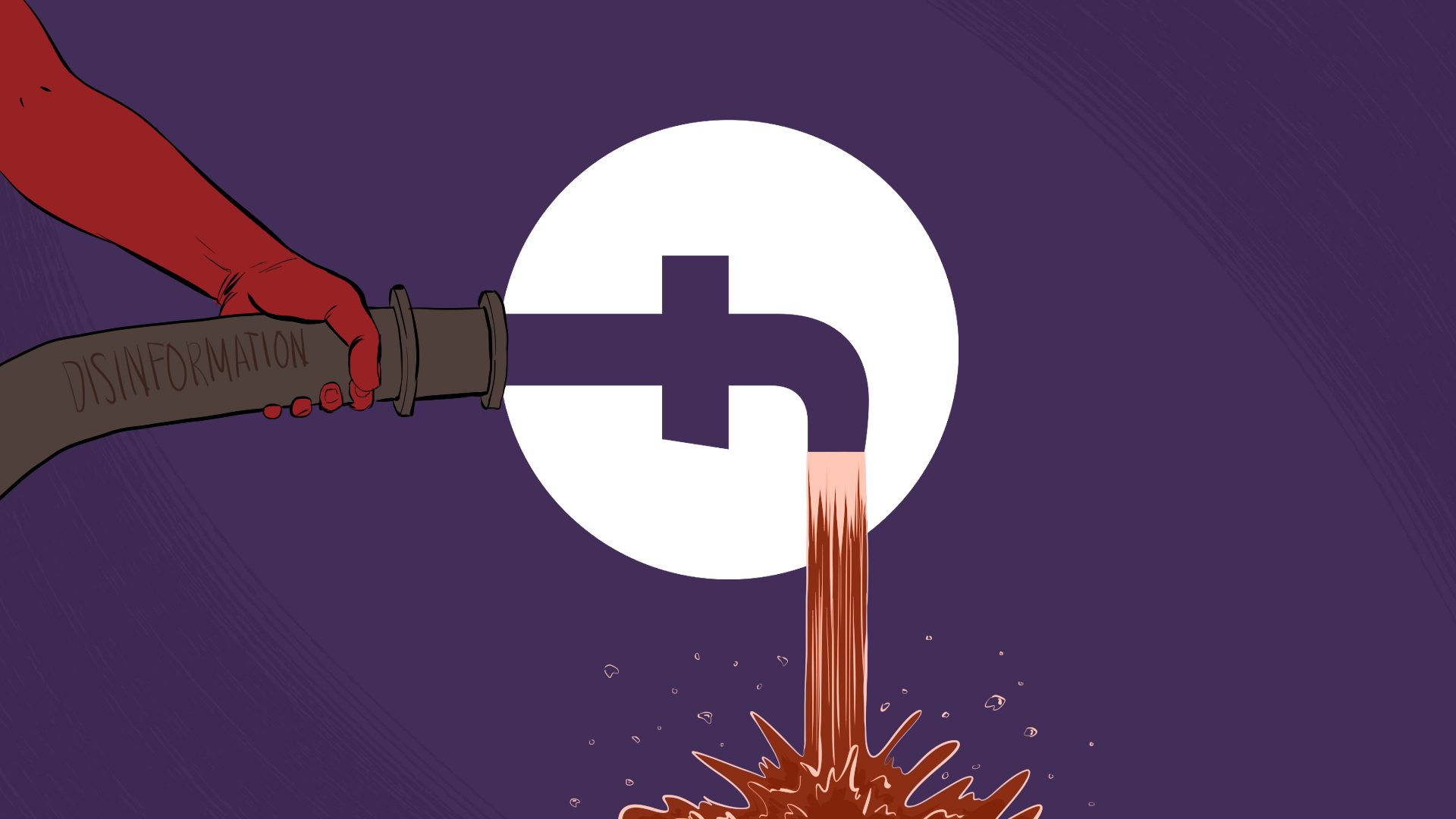
MANILA, Philippines – A new study found that non-political Facebook pages in the Philippines participate in election discourse by sharing content from partisan sources and cascading posts about political candidates. They were also found to be engaged in disinformation and the spread of disguised propaganda.
The study, entitled “Cloaked Politics: The political involvement of non-political Facebook pages in the 2022 Presidential Elections,” was conducted by associate professor Jon Benedik A. Bunquin, Julienne M. Urrea, and Myrnelle A. Cinco of the University of the Philippines Diliman Communication Research Department.
During a #FactsFirstPH briefing on Friday, April 8, co-author Bunquin outlined how 2,162,463 Facebook posts from May 1, 2021 to January 31, 2022 were analyzed for the study, using the social media monitoring tool CrowdTangle. These posts included names of political candidates and parties, and generic election keywords and hashtags.
Bunquin pointed out the following findings of the study:
- Non-political pages actively engaged in election-related conversations based on their posting behavior, such as election information dissemination and amplifying content from partisan sources including official and unofficial candidate pages;
- Activity of these pages peaked during election-related events, as early as October 7, 2021, the day before the deadline of the official filing of candidacy and Vice President Leni Robredo’s announcement of her presidential bid. Another peak day was during the premiere of Jessica Soho’s The Presidential Interviews last January 22;
- Their participation in disinformation campaigns were analyzed by identifying shared timetables of coordinated link sharing and posting, a proven indicator of unnatural behavior compared to unique pages moderated by different administrators; and
- The seemingly non-political page names and descriptions allowed the proliferation of disguised propaganda, proven by their coordinated sharing of content from pages with evidently political usernames.
Rappler has previously investigated how Facebook and other online platforms that go unregulated allow the proliferation of political lies and disinformation.
For example, a number of Youtube channels that have been previously fact-checked by Rappler label themselves as channels specifically for celebrity or trending news updates when, in fact, they mostly publish political content. In the same vein, celebrities and influencers have been found to amplify fake news and propaganda on their respective platforms.
Audience, reach, and information dissemination
By disguising themselves as interest-based pages, these seemingly non-political Facebook pages continue to obscure their identities in order to engage and take advantage of large, unsuspecting audiences who may have initially liked these pages for reasons unrelated to politics.
Facebook pages are considered sources of information, spaces for interaction, and used for strategic communication. “Page categories, names, and descriptions of these non-political Facebook pages make it appear that they are primarily disinterested and unrelated to the elections,” the study said. Categorizations may range from entertainment sites to community services, fictional characters, gaming video creators, and the like.
The study defined non-political pages as pages that appear to have been put up for reasons unrelated to politics and elections. Top non-political page categories in terms of post volume were mostly entertainment pages labeled such as “activity_general,” “community_services,” or “topic_just_for_fun.”
Despite these labels, it was found that political news from professional media comprised the top group of information being disseminated by these groups at 47.73%, followed by election issues and events at 14.58%, information about political candidates at 26.15%, and election policies and updates at 11.55%.
As for following, it was found that from over two million pages analyzed in the study, they amassed an average of 238,154 average followers, and a peak of 16,914,920 while interactions reached an average of 2,025 and a peak of 903,717.
Participation in disinformation campaigns
Evidence of coordinated link sharing and posting were found in the study as well. Coordinated link sharing is defined as the practice of the same links being shared multiple times, by many pages, within the same timestamp. Coordinated posting is defined as the same content being shared simultaneously, at the same exact time, down to the seconds-level.
This coordinated behavior shows malicious intent as it is inauthentic to how unique pages are managed by different administrators.
61 pages were identified engaging in this behavior, sharing 634 unique links, with most of the links being shared from pages not related to presidential candidates. However, links that were specifically candidate-related were identified from pages related to presidential candidates Ping Lacson and Manny Pacquiao.
“Interestingly, while having the most shares, Lacson-related pages shared only seven unique links across 28 unique pages multiple times. Conversely, Manny Pacquiao-related pages had 100 unique links shared only across nine unique pages,” the study said. These identified coordinated pages pose as entertainment pages sharing relatable quotes about life, romance and heartbreak.
Evidence of disguised propaganda was also found where seemingly non-political page names and descriptions were sharing candidate-related content. Gaming and music pages were found to be sharing content from official and unofficial pages of another presidential candidate, Ferdinand “Bongbong” Marcos Jr., and those with usernames containing the words “Duterte” and “Marcos.”
Given these findings, the researchers proposed the following recommendations for media, platforms, civil society, and voters:
- Platforms must reconsider how to hold anonymous users accountable for any abusive action online, without removing the affordance of anonymity that enables others to freely and creatively engage in dialogue;
- Spaces that appear neutral or non-political, must be investigated further as pages are able to reach audiences that are not primarily interested in politics; and
- Voters must be more vigilant of spaces online, since they may be used for political propaganda. Digital literacy and voter education programs can be enhanced by highlighting how seemingly non-political spaces can also be used to spread disinformation.
This study is part of #FactsFirstPH’s efforts in studying and tackling disinformation online, to equip voters with verified information ahead of the upcoming national and local 2022 elections. #FactsFirstPH is a coalition of more than 120 groups from the media, civil society, business, research, legal sectors, and the Church, that seek to combat disinformation. – Rappler.com
Add a comment
How does this make you feel?
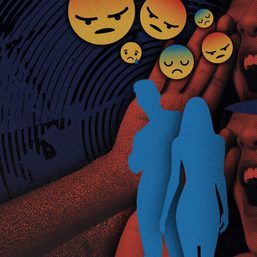

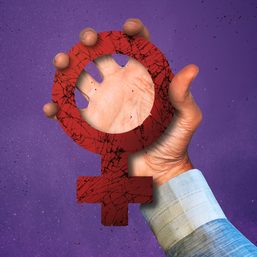
![[ANALYSIS] Cybermisogyny violates human rights](https://www.rappler.com/tachyon/2022/06/Cyber-misogyny-human-rights.jpeg?resize=257%2C257&crop_strategy=attention)
![[ANALYSIS] Building Narratives: stories of greatness and windmills in Marcos Jr.’s campaign video](https://www.rappler.com/tachyon/2022/05/Narratives-marcos-windmills-May-18-2022.jpg?resize=257%2C257&crop_strategy=attention)




![[New School] Tama na kayo](https://www.rappler.com/tachyon/2024/02/new-school-tama-na-kayo-feb-6-2024.jpg?resize=257%2C257&crop=290px%2C0px%2C720px%2C720px)
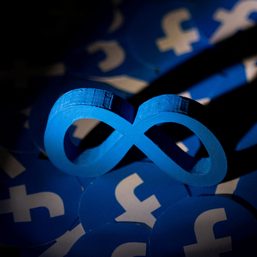


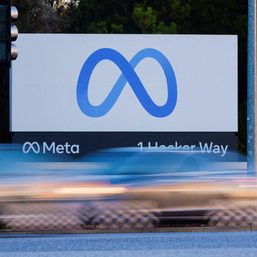
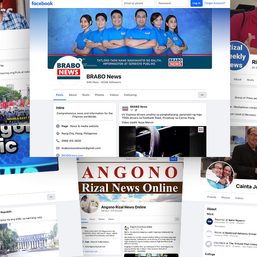
![[DECODED] The Philippines and Brazil have a lot in common. Online toxicity is one.](https://www.rappler.com/tachyon/2024/07/misogyny-tech-carousel-revised-decoded-july-2024.jpg?resize=257%2C257&crop_strategy=attention)




![[OPINYON] Tungkol sa naging viral na social media conjecture](https://www.rappler.com/tachyon/2024/07/thought-leaders-conjecture-07262024.jpg?resize=257%2C257&crop_strategy=attention)


There are no comments yet. Add your comment to start the conversation.